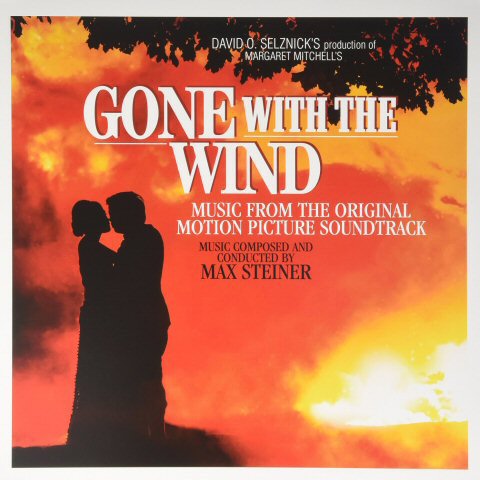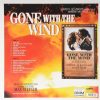Description
The score for Gone With the Wind, by Max Steiner (1888 – 1971), is one of the greatest and best-known of all film music and is the highest and most immediate representation of music of Hollywood’s pre-World War II Golden Age. David O. Selznick was halfway through shooting the immense Southern epic when, in March 1939, he sent a memo to the general manager of his studios that it was time to engage a composer and suggested Max Steiner. The Viennese-born Steiner was already a ten-year veteran of scoring sound pictures. Steiner, who had lived in the U.S. since 1915, working primarily in theatrical music, is credited as being the first to use non-source music (i.e., the audience does not see where the music comes from and, as Steiner realized, does not care) and the first to use music under dialogue. In King Kong (1933), he pioneered the use of leading motives, themes associated with characters or dramatic symbols that can be developed in parallel with the dramatic development in films. Steiner wrote over three hours of music, in 99 cues, of which two hours and 36 minutes are used in the film. The score has eight leading motives associated with characters, two love themes (Ashley/Melanie and Scarlett’s obsession with Ashley) and the powerful and sweeping Tara’s Theme, which dominates them all. There are also 16 subsidiary themes and numerous quotations of tunes of the Civil War era, all seamlessly integrated. In the case of Gone with the Wind, the leading motives tell the audience what a character is feeling and thinking, sometimes better than the character herself knows. By making Tara the dominant musical image in the film, Steiner ensures that the audience realizes it is the land that is Scarlett’s true love and the dramatic motive for much of her duplicity, avarice, and her inability to succeed in a human relationship. Steiner’s music energizes the final hour of the film, in which the drama of the Civil War has been replaced by the soap opera of Scarlett’s marriage. Steiner wrote the music in four-staff short score, with careful instructions for orchestration, which were carried out by Hugo Friedhofer, Maurice de Packh, Bernard Kaun, Adolph Deutsch, and Reginald Bassett. There are a few moments composed by some these associates and a few seconds of stock music. This album features parts of this massive work that Steiner composed back in 1939
Track listing:
1. Taras Theme-Main Title
2. Barbecue At Twelve Oaks
3. The Ball
4. Ashley And Scarlett
5. Mammy
6. Christmas In Atlanta
7. Fall Of The South
8. Atlanta In Flames
9. Intermission Music
10. Shermans March Through Georgia
11. Ashleys Return From The War
12. Scarlett And Rhett At Tara
13. Belle Watling
14. Rhett And Bonnie
15. Scarletts Ball Rhetts Remorse
16. Bonnies Death
17. Finale: Tomorrow Is Another Day



